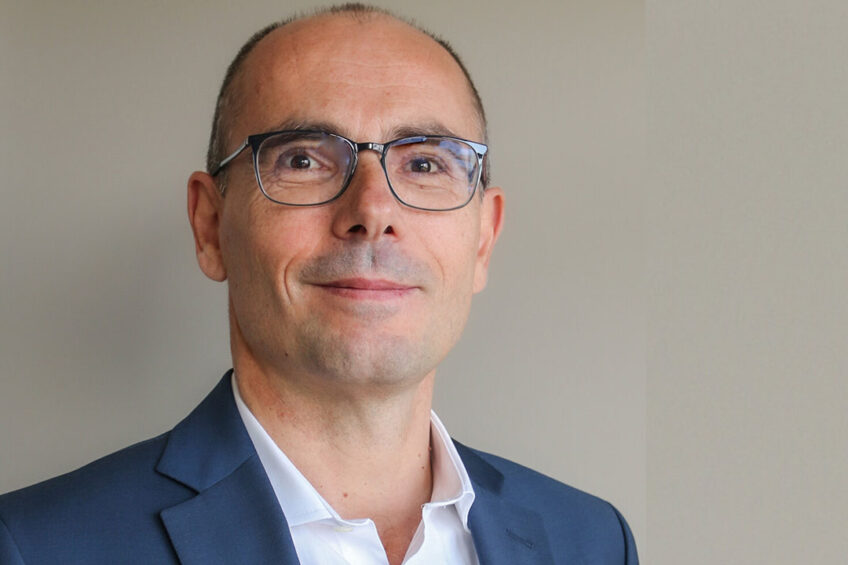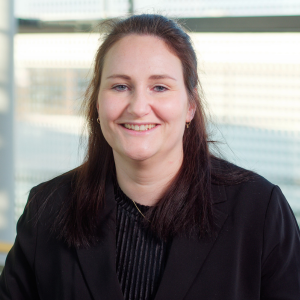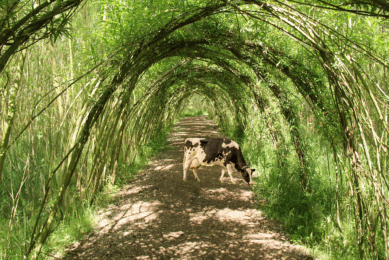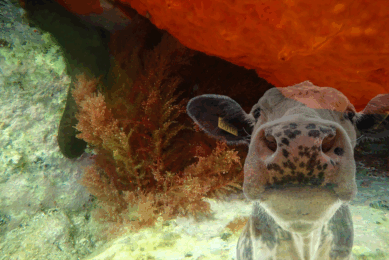CCPA’s CEO talks supporting competitiveness and sustainability

During a visit at the CCPA group’s premix production site in Janzé, France, All About Feed spoke with François Pellet, CEO of the Group. In this interview he talks about the group’s history, new strategic plans and shares his thoughts on the challenges facing the livestock sector.
The CCPA group was founded almost 60 years ago by 6 cooperatives represented by farmers, which to this day make up the company’s board of directors. In 2022 the board appointed François Pellet as new CEO of the group. He was given the task to guide the company into a new phase, including the launch of the group’s new strategic plan.
What is the purpose of this new strategic plan?
The purpose is to create a stronger platform for the future and to accelerate growth. So we need to adapt to the developments in the market. To be innovative, to be more sustainable and consumer centric, that’s important for our stakeholders and is our priority. It’s also a goal to work more efficiently as a company, while retaining the 60-year corporate culture.
What does the new plan entail?
We address 2 main challenges: competitiveness and sustainability. We believe that both can be addressed through nutrition and we help our customers to tackle these issues. These challenges are fully in line with our mission, which is to ‘engage our knowhow with passion for the competitiveness and the sustainability of the livestock sector’. At the heart of this is developing innovations and expertise in animal nutrition and sharing them with our customers. For me personally this mission makes my work meaningful. Moreover, we have a direct connection with the farmers via our shareholders. In fact, our Board of Directors is made up of farmers representing 6 of the founding cooperatives, underscoring CCPA’s commitment to maintaining a farmer-centric approach.
Can you tell us more about the challenges facing the livestock sector?
It starts with something I would call societal expectations. Society wants to see a farm like the one my grandfather had 60 years ago. However, to become more sustainable you must become more efficient, and this requires intensive farming systems to complement extensive farming systems which cover the needs of only a small minority of consumers. And, to survive, the industry must drastically reduce its emissions.
Then there is also the fact that the farming population is aging and farming is not attractive to young people wishing to start in this business. They want to have a better income and a better quality of life.
How can the industry cope with these developments? Becoming more sustainable is often associated with extra costs and investments.
I’m convinced that we can achieve a 15% to 20% emission reduction without extra costs and without reducing the livestock population, just by producing more efficiently through better farm and feed management. In 2023, we launched our dairy programme in which emissions (CO2 equivalent per litre of milk) were reduced by 15%, simply by acting on feed formulation and heifer management, while reducing the production cost of milk. For monogastrics, CCPA offers alternatives to polluting molecules, a soya-free formulation and raw material diversification. However, besides nutrition there are other factors that play a role, such as genetics and management. For example, CCPA also offers its technological expertise to feed manufacturers to help them reduce their energy consumption. So, I think we should work on a 20% reduction first
And what about the young farmers?
If we want young people to take over farms, we need to understand that they work differently. Young farmers like automation and digital tools that make the job easier and more efficient. It’s one of the ambitions of CCPA to support young farmers by developing these digital tools and investing in innovation. The Group has been investing in digital technology since 2016, and now has a data collection and interoperation infrastructure that enables it to monitor several hundred multi-equipment connected farms in France, Europe and beyond. This data is used to support the Group’s R&D and to develop decision-making tools and APIs for its customers.
You have been working in the industry for some time now. Are we moving in the right direction?
Yes, for sure, the performance of animals keeps improving, because of achievements in genetics, nutrition and farm and health management. Looking at nutrition, the fact that we have for instance amino acids that can help in formulating a lower protein diet and enzymes that help to produce more efficiently is a big difference.
When I started in the business 25 years ago, it was just about bodyweight and feed conversion ratio, but since we’re no longer allowed to use antibiotics for growth promotion and disease prevention, things have changed. You have to formulate in detail, taking into account immunity and health. This makes the job of a nutritionist more complex and, as a farmer, you need better flock management and more help.
That is what we do at CCPA. We have gathered a lot of knowledge in the past 60 years and we’re able to help customers all over the world by formulating proper feeding programmes relating to animal performance but also animal wellbeing, animal health, environmental footprint… and for sure production costs for the farmers and integrators.
Looking ahead, what are the company’s ambitions for the next 10 years?
We will focus on becoming more international by opening more premix plants globally. And we will share our knowledge with a broader customer base. For me it’s important that we don’t lose our company culture during this process: it contributed to the success of the company for the last 60 years and we need to be careful to maintain it. It’s also important that we keep and reinforce our strong footprint in the French market which is our home market: this footprint, in a tough and technical market, gives us the credibility to sell our expertise and innovation internationally.
Regarding the sector, I hope that in 10 years it will have reduced its impact on the environmental footprint of livestock farming by 20%. I think this is definitely doable. I’m pretty optimistic and CCPA will do its part to achieve this objective as we have a direct connection with the farmers via our shareholders.











